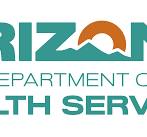There is growing consensus that traditional law enforcement in addressing mental health crises is not leading to good outcomes and needs to be overhauled.
Police officers often serve as first responders to mental health and substance abuse crises even though they’re often poorly trained or professionally and emotionally unequipped to manage such incidents. The inefficient response by law enforcement staff has high costs and often results in poor outcomes.
The evidence base is being built showing that alternative “community responses” to 911 calls involving mental health or substance abuse reduces costs, improves outcomes and reduces overall crime.
For example, this new study entitled A community response approach to mental health and substance abuse crises reduced crime documents how a pilot in Denver that directed targeted 911 calls to health care responders instead of the police.
The authors found robust evidence that the program reduced crimes like trespassing, public disorder, and resisting arrest by 34%. The sharp reduction in targeted crimes reflects the fact that health-focused first responders are less likely to report individuals they serve as criminal offenders and the spillover benefits of the program (e.g., reducing crime during hours when the program was not in operation).
Another essay in Scientific American: Sending Health Care Workers instead of Cops Can Reduce Crime makes a compelling argument that non-police-centered strategies not only are better at reducing crime; they’re less expensive & don’t come with the negative lateral consequences associated with policing.
In part, that’s because law enforcement is poorly equipped to resolve mental health or substance abuse issues in the field and tend to default to transport to emergency departments and arrests, both of which are extremely expensive and not associated with good outcomes.
HBO has captured the San Antonio Police Department’s pioneering crisis intervention approach in an Emmy Award-winning documentary, and Vitalyst is pleased to be offering free virtual screenings.
Ernie, Joe, and Behavioral Health Crisis Best Practices
As communities reckon with the behavioral health impacts of the pandemic and more, the work modeled by Ernie and Joe in this documentary is more important than ever. All Arizonans are encouraged to view the full documentary via HBO, and our first responders are urged to click here to register today for their free regional screening events.
Phoenix Pilot Innovations Under Way
The City of Phoenix recently implemented a pilot Psychiatric Emergency Response Team intervention which integrates police officers with mental health clinicians. The PERT model is a critical shift in how communities address behavioral health crises.
Inside the special Phoenix police team that calms mental health crises
Officers in the program receive specialized training to recognize and respond to mental health challenges, while clinicians on the team provide expert support to assess needs and recommend care pathways.
These approaches, including Crisis Intervention Training (CIT) for officers and co-responder models like PERT, emphasize collaboration and compassion. Research has consistently shown that such interventions improve outcomes for individuals in crisis, reduce repeat interactions with law enforcement, and even lower crime rates.
In Phoenix, the program’s benefits extend beyond individual outcomes. By diverting cases that would otherwise result in arrests or emergency department visits, PERT reduces strain on the criminal justice and healthcare systems. This efficiency creates a ripple effect, freeing resources to address more pressing public safety and health issues.
However, as promising as the PERT model is, it should be part of a broader strategy to address the root causes of behavioral health crises. Investments in affordable housing, accessible mental health care, and substance use treatment are essential. Addressing social determinants of health can prevent crises from occurring in the first place, reducing the need for emergency interventions.


